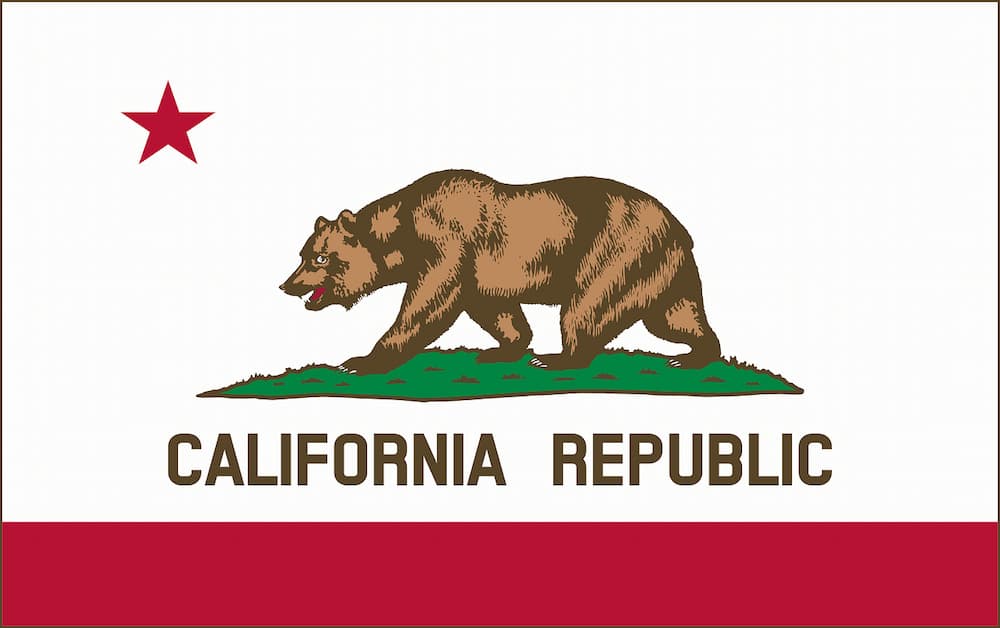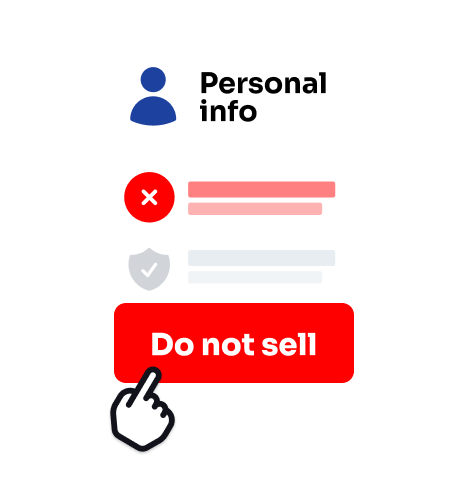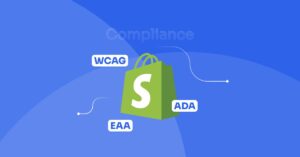Introduction
Nowadays, people are becoming increasingly aware of the importance of data privacy. With the rise of cyber threats and data breaches, consumers are more conscious of protecting their personal information. In response to this growing concern, governments worldwide ensure individuals have greater control over their data. One such example is the California Consumer Privacy Act (CCPA), which was enacted in 2018 and has since been updated with the California Privacy Rights Act (CPRA) in 2020.
The CCPA and CPRA are designed to empower individuals by giving them greater control over their personal information. One of the key provisions of these regulations is the right to opt-out of the sale of personal data. This means that businesses must provide consumers with a clear and easy way to opt-out of having their personal information sold to third parties. If a consumer opts out, the business cannot sell their personal information without explicit consent.
However, complying with these regulations is not always straightforward. Businesses must implement several compliance measures to adhere to the CCPA and CPRA requirements fully. This includes updating their privacy policies, creating a ‘Do Not Sell My Personal Information’ link on their website, and training their employees to handle data privacy requests. Failure to comply with these regulations can result in significant fines and legal repercussions.
A brief overview of the CCPA and CPRA
The California Consumer Privacy Act (CCPA) has been in effect since January 1, 2020. Californian residents have been given new and exceptional rights concerning their personal information, including the ability to opt-out of having their personal information sold. This law applies to businesses that meet specific revenue or data processing thresholds and requires them to disclose their data practices and honor consumer requests. The CCPA has been a significant milestone in data privacy, as it empowers consumers to control how businesses use their personal data.
However, the CCPA is only the beginning. The California Privacy Rights Act (CPRA), which became effective on January 1, 2023, expands on the CCPA’s provisions and introduces stricter requirements for businesses. The CPRA established the California Privacy Protection Agency, responsible for enforcing the law and protecting Californians’ privacy rights. The CPRA also introduced new rights for consumers, such as the right to correct inaccurate personal information and restrict businesses from sharing their personal data with third parties.
The CCPA and CPRA represent a significant step forward in protecting individuals’ privacy rights, especially in the digital age. These laws give Californian residents more control over their personal information and establish stricter requirements for businesses to protect their customers’ data.
What businesses does the CCPA apply to?
The California Consumer Privacy Act (CCPA) is a privacy law that applies to for-profit businesses operating in California. The law has specific criteria that businesses must meet to fall under its jurisdiction. Firstly, a business must have an annual gross revenue that exceeds $25 million. Secondly, if a business derives 50% or more of its annual revenue from selling consumers’ personal information, it is also subject to CCPA regulations.
Thirdly, if a business annually buys, receives, sells, or shares the personal information of 50,000 or more consumers, households, or devices, it must comply with CCPA requirements. These criteria ensure that businesses that collect and handle sensitive information are held accountable for protecting consumers’ privacy rights under California law.

Does CCPA apply to companies outside California?
The California Consumer Privacy Act (CCPA) is a law that regulates the collection and use of California consumers’ personal information. It applies to all businesses that collect the personal information of California consumers, regardless of where the business is located. This means that even companies not based in California must comply with the CCPA if they meet the criteria set forth by the law.
The CCPA defines personal information broadly and includes any information that identifies, relates to, describes, or is capable of being associated with a particular individual or household. Businesses that fall under the CCPA’s scope must provide certain disclosures to consumers, including information about the personal information being collected, the purposes for which it is being collected, and the categories of third parties with whom the information is being shared.
What rights does a user have under CCPA?
The California Consumer Privacy Act (CCPA) grants consumers certain rights regarding the personal information businesses hold. These include the right to know what types of consumer’s personal information businesses collect about them, the right to opt-out of the sale of their personal information, the right to request the deletion of their personal information, and the right to non-discrimination for exercising their privacy rights. These rights are designed to give consumers control over their personal data and ensure that businesses are transparent and accountable for handling this information.
Right to know: Users have the right to know what consumer’s personal information businesses collect about them, including the categories and specific information gathered and the purposes for which the data is used.
Right to delete: Users can request that businesses delete the consumer’s personal information they have collected on them in the past twelve months, subject to certain exceptions. This includes sensitive data like religious or philosophical beliefs.
Right to opt-out: Users have the right to opt-out of the sale of their personal information. Businesses must respect this choice and refrain from selling personal data once an opt-out request is received.
Right to non-discrimination: The CCPA prohibits businesses from discriminating against consumers who exercise their privacy rights. This means businesses cannot deny goods or services, charge different prices, or provide a lower quality of service to consumers who opt-out of selling their personal information.
Requirements of the ‘Do Not Sell or Share’ rule
As per the ‘Do Not Sell or Share’ rule under the California Consumer Privacy Act (CCPA), businesses that fall under this law must provide a clear and conspicuous link on their homepage that reads ‘Do Not Sell My Personal Information’. This link should be easily accessible to users and must lead them to a page where they can opt-out of the sale of their personal information.
Furthermore, businesses must ensure that they honor opt-out requests made by users through electronic or other means and refrain from selling any personal data thereafter. This means that if a user decides to opt-out of the sale of their personal information, businesses must acknowledge the request, comply with it, and not share or sell personal information with any third-party entities. Selling or sharing personal information under the CCPA is defined as exchanging personal data for monetary or valuable consideration to a third party. The ‘Do Not Sell or Share’ rule is essential to the CCPA, and businesses must take all necessary steps to uphold it.
The CCPA (CPRA) and the need for a ‘Do Not Sell My Personal Information’ page
The California Consumer Privacy Act (CCPA) and the California Privacy Rights Act (CPRA) are two important pieces of legislation that aim to enhance transparency and give consumers greater control over their personal information. One key provision of these laws requires businesses to set up a ‘Do Not Sell My Personal Information’ page on their websites, ensuring it is easily accessible and prominently displayed on their homepage and in other prominent locations like the website’s footer. This page serves as a central hub where consumers can exercise their right to opt-out of selling their personal data to third parties.
By visiting this page, consumers can review what types of information are being collected about them, who it is being shared with, and whether they want to allow that information to be sold. This simple yet powerful tool empowers consumers to make informed decisions about their privacy and helps ensure their personal data is handled responsibly and ethically.

What is considered personal information and sensitive personal information under the CCPA?
Under the California Consumer Privacy Act (CCPA), personal information refers to any data that can be used to identify, describe, relate to, or be reasonably linked with a particular consumer or household. This includes information such as names, email addresses, physical addresses, phone numbers, social security numbers, driver’s license numbers, passport numbers, unique identification numbers, account numbers, payment card information, and other similar identifiers.
Sensitive personal information, on the other hand, is a subset of personal information that requires extra protection due to its sensitive nature. This type of information includes data such as social security numbers, financial account information, precise geolocation data, and information revealing racial or ethnic origin, religious beliefs, or sexual orientation. These categories of information are considered sensitive because they can be used to discriminate against individuals or cause harm if they fall into the wrong hands. Therefore, businesses that collect, use, or disclose sensitive personal information must take extra precautions to protect it from unauthorized access, use, or disclosure.
Why did the business deny my opt-out request?
A business may deny an opt-out request for various reasons. For instance, if the business cannot verify the consumer’s identity making the request or if the request does not meet the criteria outlined in the CCPA, the business may deny the request. If a business denies an opt-out request, it must provide the consumer with a clear and concise explanation of why the request was denied. Additionally, the business must provide instructions on how the consumer can remedy the issue. This may involve providing additional information to verify their identity or ensuring that the request meets the requirements of the CCPA.
It’s important to note that businesses must respond to opt-out requests within 45 days, and failure to do so may result in legal consequences. Also, a business may act as a service provider under the CCPA, meaning it processes personal information on behalf of other businesses. Service providers are not obligated to honor consumer requests directly and should direct inquiries to the businesses they serve.
Why is the business asking me for more information?
To safeguard their customer’s personal information, businesses may require additional information to verify the identity of the individual making a request. This could include details such as the individual’s full name, address, date of birth, or any other relevant information.
By doing this, businesses can ensure the security of sensitive data and prevent unauthorized access or disclosure of personal information. This is an important measure to protect individuals’ privacy and security and maintain customers’ trust in the business.

CCPA compliance checklist
To ensure compliance with the California Consumer Privacy Act (CCPA), businesses should take the following steps:
1. Determine the applicability of the CCPA based on their revenue and data processing activities. If a business meets certain criteria, such as generating annual gross revenue of $25 million or more, collecting personal information of 50,000 or more California residents, or deriving 50% or more of their annual revenue from selling California residents’ personal information, then they must comply with the CCPA.
2. Provide clear notices to consumers about their data collection practices. Businesses must inform consumers about what categories of personal information they collect, how they use it, and who they share it with. These notices should be easily accessible and understandable to the average person.
3. Implement mechanisms for consumers to opt-out of selling their personal information. Businesses must provide a clear and conspicuous link on their website titled ‘Do Not Sell My Personal Information’ that allows consumers to opt-out. Businesses must also provide consumers with a notice explaining their right to opt-out.
4. Establish procedures for handling consumer requests to access or delete personal information. Businesses must allow consumers to request access to their personal information or to have it deleted. Businesses must respond to these requests within 45 days and verify the requester’s identity before granting access or deleting the information.
5. Train employees on CCPA requirements and data handling best practices. Businesses should provide training to their employees on the CCPA requirements and best practices for handling personal information. Employees with access to personal information should be trained to protect it from unauthorized access, use, or disclosure.
Conclusion
The California Consumer Privacy Act (CCPA) and the California Privacy Rights Act (CPRA) are two crucial pieces of legislation designed to protect consumers’ personal information. They aim to give Californian consumers greater control over their data, requiring businesses to be transparent about their data collection and processing practices. Under these regulations, businesses must disclose what data they collect, why, and how they use it. They must also provide consumers with the option to opt-out of selling their personal information, known as ‘Do Not Sell My Personal Information.’ This mechanism assures consumers that their data is not being sold without consent.
Compliance with CCPA and CPRA is essential for businesses to avoid costly penalties and maintain consumer trust. Businesses that fail to comply with these regulations can face fines of up to $7,500 per violation, increasing the importance of adhering to these requirements. By complying with CCPA and CPRA, businesses can foster transparency and accountability in their data processing practices. This, in turn, enhances consumer trust and confidence, providing businesses with a competitive edge. Navigating the complex data privacy landscape can be challenging; however, by staying up-to-date with the latest regulations, businesses can uphold their responsibility to protect consumer data.







